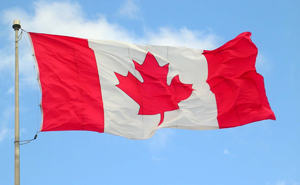This year has seen significant developments in Canada’s hate speech legislation, say attorneys Ryder Gilliland and Adam Lazier.
Sean Gallagher
Index
July 21, 2013
In February, the Supreme Court released its decision Whatcott v. Saskatchewan (Human Rights Commission), largely upholding the constitutionality of the hate speech provision in the province of Saskatchewan’s human rights statute.
Bill Whatcott is a conservative Christian campaigner who was fined $17,500 dollars in 2005 for distributing hate materials. His case rumbled through the courts until February, when the Supreme Court ruled against him.
In June, however, Parliament voted to repeal a hate speech provision in the federal human rights legislation. This is a significant legislative change, but whether provincial legislatures and courts will follow suit is very much an open question.
The regulation of hate speech in Canada
Hate speech in Canada is regulated in two ways. Section 319 of the Criminal Code makes it an offence to wilfully promote or publicly incite hatred. A violation of Section 319 carries serious consequences, including imprisonment for up to two years. Someone charged criminally under Section 319 has a number of defences available, including “truth”, and that the statements were in the public interest and the accused reasonably believed them to be true.
Hate speech is also prohibited by human rights legislation at both the federal and provincial levels. Human rights legislation carries less serious consequences than the criminal law provisions, but a respondent to a human rights claim has far fewer defences available. Human rights complaints are decided by administrative tribunals rather than courts.
Both types of hate speech legislation have been challenged in court as violations of Canada’s constitutional protection for freedom of expression. These challenges have not met with much success. Although the Supreme Court struck down an antiquated “false news” law used to prosecute holocaust denier Ernst Zundel (R. v. Zundel, [1992] 2 S.C.R. 731), it has upheld the constitutionality of the criminal offence of wilfully promoting hatred (R. v. Keegstra, [1990] 3 S.C.R. 697).
In Whatcott, the Supreme Court largely upheld a hate-speech prohibition in Saskatchewan’s human rights legislation, despite that the provision does not even allow a defence of truth (2013 SCC 11).
The repeal of section 13 of the Canadian Human Rights Act
Just four months after the Whatcott decision parliament voted to repeal section 13 of the Canadian Human Rights Act (the “CHRA”), the federal equivalent to the Saskatchewan law at issue in Whatcott. The repeal comes into effect after one year.
Section 13, which was upheld by the Supreme Court of Canada in 1990, prohibits anyone from repeatedly communicating hate speech over the telephone or interner. The Tribunal can punish contraventions by ordering that the speaker financially compensate the victim. (A provision allowing the Tribunal to also order a $10,000 “penalty” as well was struck down by a 2012 Federal Court decision).
Human Rights Laws: A blunt instrument for regulating speech
Canada’s criminal hate speech laws arguably have a minimal impact on freedom of expression rights, as there is a high burden of proof and there are numerous defences available, including the defence of “truth”. It seems unlikely that mainstream media will be prosecuted, much less prosecuted successfully, under Section 319 of the Criminal Code.
Human rights hate speech laws are different. There are far fewer protections for respondents in human rights cases and the mainstream media has recently had to defend against human rights complaints. Thus, they appear to be a potentially dangerous incursion into free speech territory.
 Daily Stormer The Most Censored Publication in History
Daily Stormer The Most Censored Publication in History



